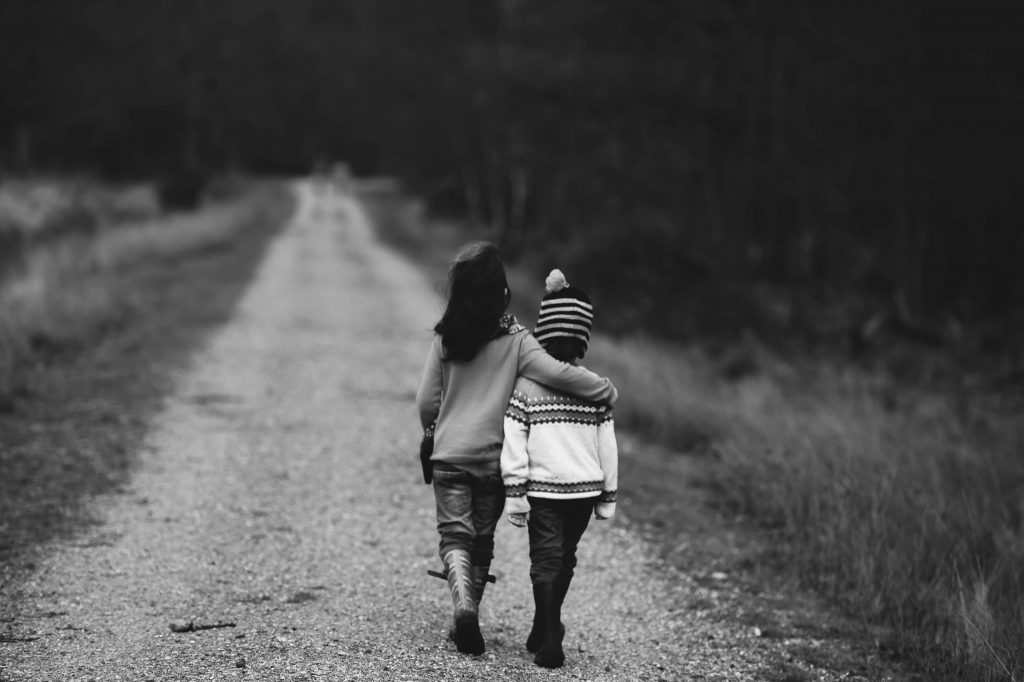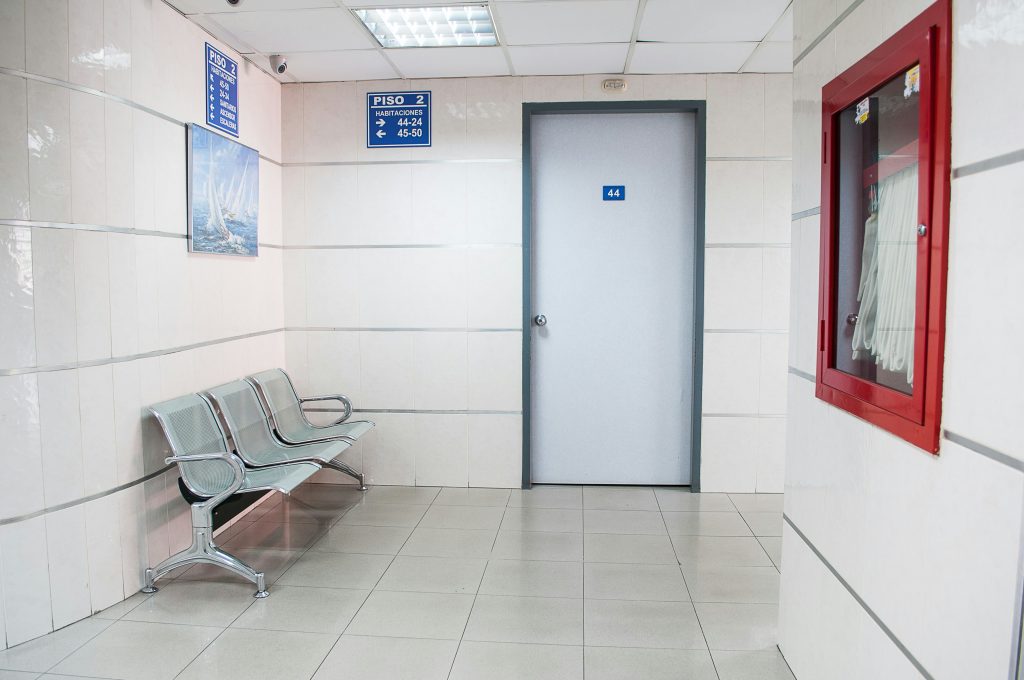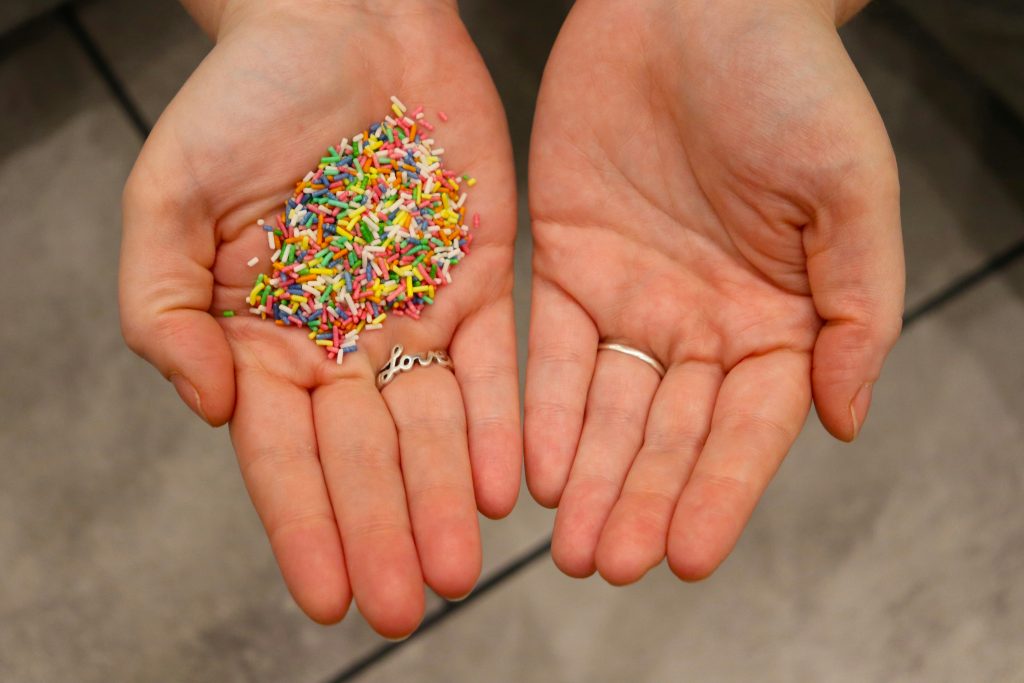The relationships we have with our siblings can be complex at the best of times. We may be allies, adversaries, friends, or rivals – or perhaps more commonly, a mixture of all four. Whilst sibling dynamics can be challenging for all, the picture becomes more complicated when a young person’s brother or sister is struggling with their mental health. With one in five 8–16-year-olds in the UK estimated to have a probable mental disorder (Newlove-Delgado et al., 2023), and a record number of young people being referred for mental health support (CQC, 2024), the effect of youth mental health problems on siblings is ever-growing.
As discussed by McGrath et al. (2024), when a young person is admitted to an inpatient unit (IPU) for psychiatric treatment, there is an emotional and psychological effect on the whole family (Bowman et al., 2014). Not only are parents placed under a huge amount of stress (Merayo-Sereno et al., 2023), but the wellbeing of siblings is also likely to be negatively impacted (Levkovich & Labes, 2023). Yet despite this negative impact, relatively little research has explored the issue. McGrath et al. (2024) addressed this gap, taking a qualitative approach to explore how young people make sense of their experiences at the time of their siblings’ hospitalisation, identifying their needs and making suggestions as to how these may be met.

Sibling relationships can be complex but may be further complicated by the presence of a mental health problem and subsequent inpatient treatment. McGrath et al. (2024) studied sibling experiences from a qualitative perspective.
Methods
Ten participants aged 13-22 years, whose sibling was currently or recently (i.e., in the past three months) a resident in a mental health IPU, were recruited. Participants took part in semi-structured interviews that followed a topic guide. This consisted of open-ended questions, allowing participants the space to explore their experiences before, during, and after their siblings’ hospitalisation (e.g., “what was it like for you when they [your sibling] were in IPU?”).
Interpretive Phenomenological Analysis (IPA) was used to analyse the data. This qualitative method recognises humans as active agents with individual interpretations of their experiences, and allows researchers to gain a deeper understanding into each participants’ story. As IPA focuses on each individual in an in-depth way, it is well-suited to complicated and emotional topics such as this one. Steps were taken to promote reflexivity, including bracketing (in which researchers set aside their own beliefs and assumptions to avoid misinterpreting the data), and post-interview reflection.
Results
Participants
All participants were Irish and Caucasian, with an average age of 17 years. Four had divorced parents. The participants’ nine siblings also had an average age of 17 years old and were predominantly diagnosed with depression and anxiety (70%), although a range of other mental health difficulties were also reported (e.g., bipolar disorder, anorexia nervosa).
Analysis
The researchers identified two overlapping super-ordinate themes which were common across all interviews, with five sub-ordinate themes emerging from the point of overlap.
Super-ordinate theme 1: Who am I, if I am not supporting them?
This theme reflected the effect of their sibling’s mental health on participants’ identities, particularly emphasising the burden of additional responsibility that they carried. This included supporting their hospitalised sibling as well as their parents, and adapting to family dynamics that were shaped by their brother or sister’s mental illness.
I feel responsible for my mother and my father. Like they are way more responsible for me but I feel like it’s my duty to ensure I don’t do anything stupid that makes their lives worse.
Super-ordinate theme 2: On the fringes – actively involved but from the outside
This theme captured the challenges faced by participants in supporting their sibling. They felt as though they were “on the outside, looking in” – both protective and concerned for their sibling, whether physically present or not.
Sub-ordinate theme 1: Confusion and disbelief
Their siblings’ mental health problems weighed heavily on participants, who experienced lingering uncertainty and confusion about how and why a crisis point had been reached. Whilst admission to the IPU sometimes came with a degree of relief that their sibling was receiving help, this was often accompanied by fear for the future.
Sometimes the negativity overwhelms the positives by a massive proportion but there’s always a slight bit of relief because you know I’m fearful. . . I’m fearful for my sister’s life…
Sub-ordinate theme 2: Do not worry about me, focus on them
Minimising their own needs, ignoring feelings of overwhelm, and hiding struggles from family members was common. Some participants wanted to be a “rock” for their parents and felt a sense of responsibility to remain strong during difficult times.
Sub-ordinate theme 3: Powerless when I need to be powerful
Participants experienced discordance between an intense desire to help their sibling and the feeling of being powerless to do so, particularly when their sibling self-harmed. Worry about saying or doing the wrong thing could be paralysing at times, which then caused further guilt about inaction and a desire for support and guidance.
I cannot like cut ties with him, I cannot like get angry to the point where he will not come to me…
Sub-ordinate theme 4: Helping or hindering – what is this place?
Whilst some participants reported that the environment of the IPU was pleasant, others struggled with the restrictions of the unit. The physical environment, with its locked doors and “confining” visiting rooms, invoked questions about whether their sibling could recover in such a place, or if they would be triggered further.
And like you just think this is what Alcatraz is like and it’s just…that’s kind of paranoia producing because why is there so many doors?
Sub-ordinate theme 5: Knowledge is power
Worrying about stigma or burdening others was a barrier to accessing support for many participants, who wanted more information about how to help their sibling. Whilst a few participants were happy with generic information leaflets, most reported that more personalised and practical advice (e.g., how to avoid triggers) would help them to feel more confident.

Participants described feeling a strong sense of responsibility to support their siblings and other family members, but often felt powerless or “on the fringes” and unable to provide the support they felt they should.
Conclusions
Siblings of young people hospitalised for mental health problems experience a variety of different emotions, ranging from guilt and powerlessness to anxiety and fear. They report an internal conflict between wanting to help their brother or sister, but feeling unable or unsupported to do so. There is often a strong sense of responsibility from siblings, many of whom want to support their parents and therefore shoulder a heavy burden.
Qualitative interviews revealed a degree of ambivalence regarding whether the IPU was helpful or detrimental, with some siblings questioning if the environment was conducive to recovery. The researchers concluded that siblings’ desire for knowledge and practical advice should be met by IPUs, but this should be done carefully to avoid overwhelming them.

Whilst many participants expressed relief when their sibling was admitted to an inpatient unit for mental health support, some questioned how helpful the setting would be for their recovery.
Strengths and limitations
This study has many strengths, including its use of IPA which enabled the analysis to go beyond surface-level descriptions to offer rich insight into how young people experience and make sense of their siblings’ hospitalisation. Consequently, its findings are valuable for researchers and practitioners looking to better understand the effect of hospitalisation on siblings, what needs they have, and how these can be best met.
Overall, the study is methodologically sound, as demonstrated by its detailed reporting of procedure and reflexive practices. Additionally, participants’ siblings were currently or recently receiving IPU treatment, thus increasing its reliability and minimising recall bias (i.e., inaccuracies in recollections that are reported retrospectively). It represents a valuable contribution to the field by exploring an under-researched area.
After reading the paper, however, several questions remain unanswered. For example, little demographic information is provided about participants’ own mental health, as researchers have only reported whether or not they had previously sought treatment. As many young people do not access professional support for their mental health (NHS Digital, 2018), this metric may not be an accurate reflection of experiences – particularly in this population, who report minimising their own struggles. It is plausible that those who have first-hand experience of mental health problems may respond to their siblings’ hospitalisation differently, making this an important factor for future consideration.
The researchers state that the sample was purposely homogeneous, as is typical of studies that use IPA (Love et al., 2020). However, this limits the potential transferability of findings, particularly as all participants were White Irish and played some role in their siblings’ recovery. The researchers also have not reported the reasons why some young people who were approached declined to take part in the study; this additional information would help to characterise the group who took part and contextualise the results.
Furthermore, the sample was not totally homogeneous, as participants’ siblings were hospitalised for different mental health concerns. It could be the case that experiences differ depending on the diagnosis of one’s sibling. For example, the greater stigma associated with schizophrenia compared to depression and anxiety (Hazell et al., 2022) may affect the way that young people perceive and respond to their brother or sister being hospitalised. This potential source of heterogeneity causes problems for IPA, which relies on homogeneity for the effective integration of findings (Love et al., 2020).

Whilst the sample was homogeneous in some aspects (e.g., ethnicity), the diagnoses of siblings varied greatly from anxiety and depression, to OCD and bipolar. This calls into question the true homogeneity of the sample and appropriateness of IPA.
Implications for practice
The authors highlight the clinical and policy implications of their findings. They suggest that when a young person is admitted to an IPU, it seems important for clinicians to pay attention to their wider family network, including any siblings. This conclusion was informed by family systems theory, and the idea that families are complex units in which each member influences the behaviours and experiences of others. In this light, the hospitalisation of a young person has an inevitable ripple effect which is felt by parents, and also by brothers and sisters. As a result, if a patient has a sibling, providing them with clear information about mental health services and how to navigate them could help to alleviate some of the confusion and powerlessness they may feel. In turn, this could help to support the siblings’ own mental wellbeing.
The study found that young people often experience a sense of responsibility to minimise burden on parents, often by putting the needs of their hospitalised brother or sister above their own. Consequently, the authors highlight the need to encourage siblings to “put their own oxygen mask on first”. They suggest that peer groups may help siblings to access support and share experiences with others in their situation who “truly understand”. This may help them to recognise and prioritise their own needs. Further research is required to assess the benefits of such groups in addition to the feasibility of their delivery within often over-stretched and under-resourced services. It could be the case that alternative forms of support for young people which are less resource heavy, such as specialist self-guided wellbeing interventions, may also merit further evaluation.
Whilst not explored by the authors in the “Clinical and policy implications” section, the results of the study highlight that visiting rooms can be perceived as “confining” and may “evoke feelings of entrapment” for some siblings. As such, services and clinicians may wish to consider the physical environments of IPUs to ensure that they are inviting and welcoming for family members. This may help to set the scene for visits that are as positive as possible, despite difficult circumstances.

Findings from McGrath et al. (2024) emphasise the importance of clinicians taking the whole family into consideration when a young person is admitted to an inpatient unit.
Statement of interests
None reported.
Links
Primary paper
McGrath, L., Wilson, C. E., & Buckmaster, A. (2024). ‘No one else understands’, ‘I wouldn’t want to pity myself over something that’s not really my problem’: siblings’ experiences of their adolescent brothers and sisters’ inpatient treatment for mental health difficulties. Child and Adolescent Mental Health, 29(1), 4–13.
Other references
Bowman, S., Alvarez‐Jimenez, M., Wade, D., McGorry, P., & Howie, L. (2014). Forgotten family members: the importance of siblings in early psychosis. Early Intervention in Psychiatry, 8(3), 269–275.
CQC. (2024). Children and young people.
Hazell, C. M., Berry, C., Bogen-Johnston, L., & Banerjee, M. (2022). Creating a hierarchy of mental health stigma: testing the effect of psychiatric diagnosis on stigma. BJPsych Open, 8(5), e174.
Levkovich, I., & Labes, M. (2023). “I wanted to hide but also to be found”: the high school experiences of young adults who grew up in the same home as a sibling with depression. BMC Psychology, 11(1), 190.
Love, B., Vetere, A., & Davis, P. (2020). Should Interpretative Phenomenological Analysis (IPA) be Used With Focus Groups? Navigating the Bumpy Road of “Iterative Loops,” Idiographic Journeys, and “Phenomenological Bridges.” International Journal of Qualitative Methods, 19, 160940692092160.
Merayo-Sereno, B., Fernández-Rivas, A., de Oliveira-Silva, K. L., Sánchez-Andérez, F.-J., Sesma-Pardo, E., Vivanco-González, E., & González-Torres, M. Á. (2023). The experience of parents faced with the admission of their adolescent to a child and adolescent psychiatric inpatient unit. A qualitative study with focus groups. Current Psychology, 42(8), 6142–6152.
Newlove-Delgado, T., Marcheselli, F., Williams, T., Mandalia, D., Dennes, M., McManus, S., Savic, M., Treloar, W., Croft, K., & Ford, T. (2023). Mental Health of Children and Young People in England, 2023.
NHS Digital. (2018). Mental Health of Children and Young People in England, 2017 [PAS].







